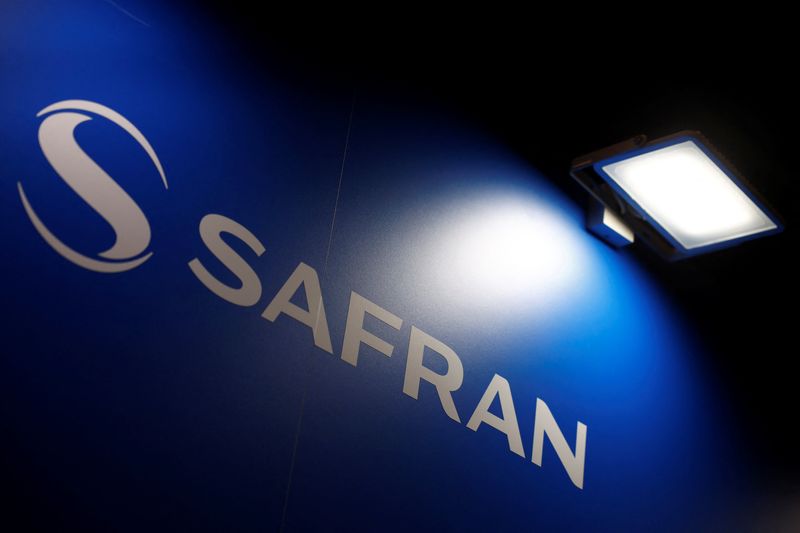PARIS (Reuters) -French jet engine maker Safran (EPA:SAF) posted an 18.1% jump in first-quarter revenue and reaffirmed financial targets for the year while joining U.S. partner GE Aerospace in lowering a target for engine deliveries.
The Paris-based company posted quarterly revenues of 6.22 billion euros ($6.67 billion), up 19.1% on an underlying basis.
The widely-watched civil aftermarket business grew 27.3% in dollar terms. But deliveries of the LEAP jet engine were flat after a slow start to the year in plane production, notably at Boeing (NYSE:BA).
Safran co-produces engines for Boeing and Airbus narrow-body jets with GE Aerospace through their CFM joint venture, which is the sole supplier to Boeing's 737 MAX family of jets and competes with Pratt & Whitney on the Airbus A320neo series.
Echoing GE earlier this week, Safran is now projecting LEAP engine deliveries will be up 10%-15% this year, a down from its previous estimate of 20%-25% growth.
The drop in deliveries is slightly positive for Safran's profits in the near term because engines are typically sold at a loss with all the profit made in maintenance work. But it is expected to push up inventories and weigh on cash.
Earlier this month, Reuters first reported that Boeing's MAX output had plunged into single figures per month.
Safran CEO Olivier Andries said CFM would temper its engine production plans to fit the lower delivery goal.
"We have lowered our target for the year and clearly we are adapting our purchasing plans to a realistic delivery plan," he told reporters.
The Boeing slowdown comes at a time when jet demand is high and Airbus is pushing production higher.
Although CFM supplies both planemakers, the two versions of LEAP engine are not inter-changeable and there is no change in delivery plans to Airbus for 2024, while 2025 is still at the planning stage, Andries said.
Supply chains, meanwhile, remain under pressure across all business, Andries said.
Overall propulsion revenues, up 15.4% on a like-for-like basis, lagged other divisions including aircraft interiors whose 23.8% growth was driven mainly by service revenues that are linked to rises in air traffic.
However, business-class seat deliveries fell 25%. Andries this was mainly due to some shipments slipping into the second quarter.

Andries said Safran had won an exemption from Canada allowing it to use Russian titanium, echoing similar moves disclosed by Airbus and Bombardier (OTC:BDRBF).
Canada in February became the first Western country to add the strategic metal to packages of economic measures taken against Moscow over the war in Ukraine. Russia is a key supplier of the metal used in jet engines and landing gear.